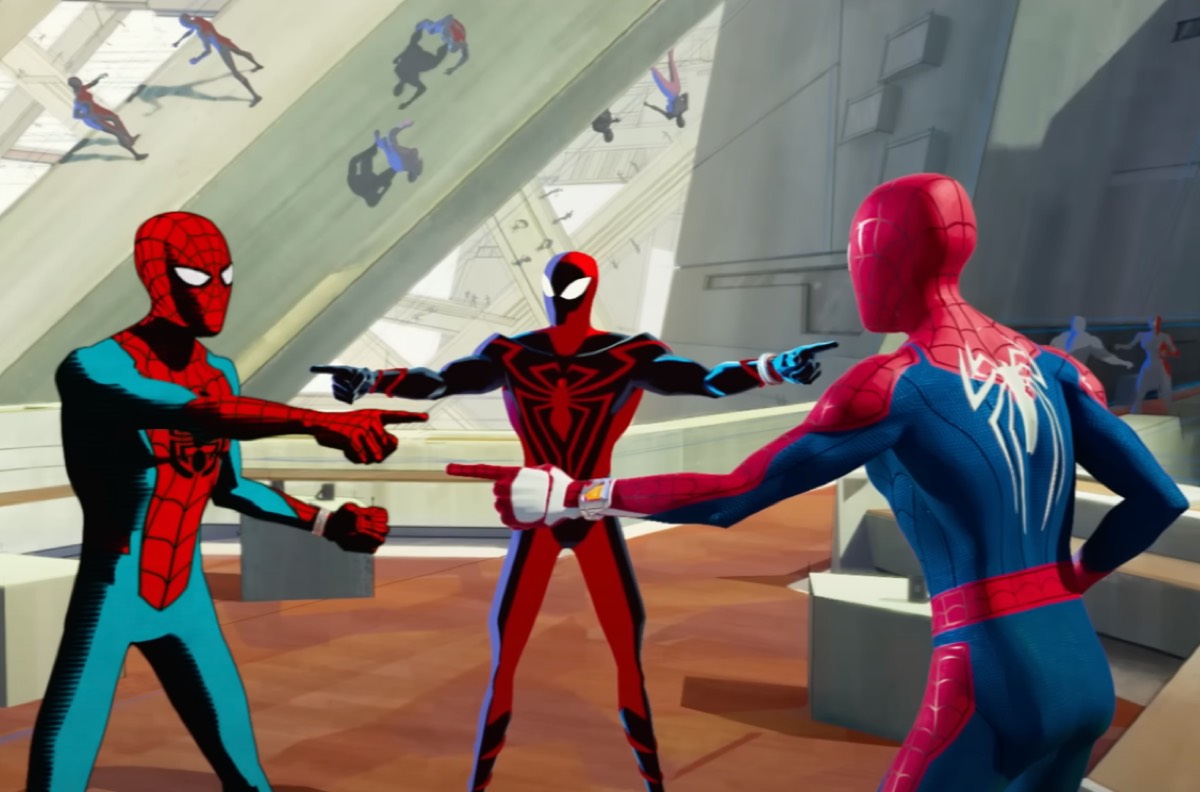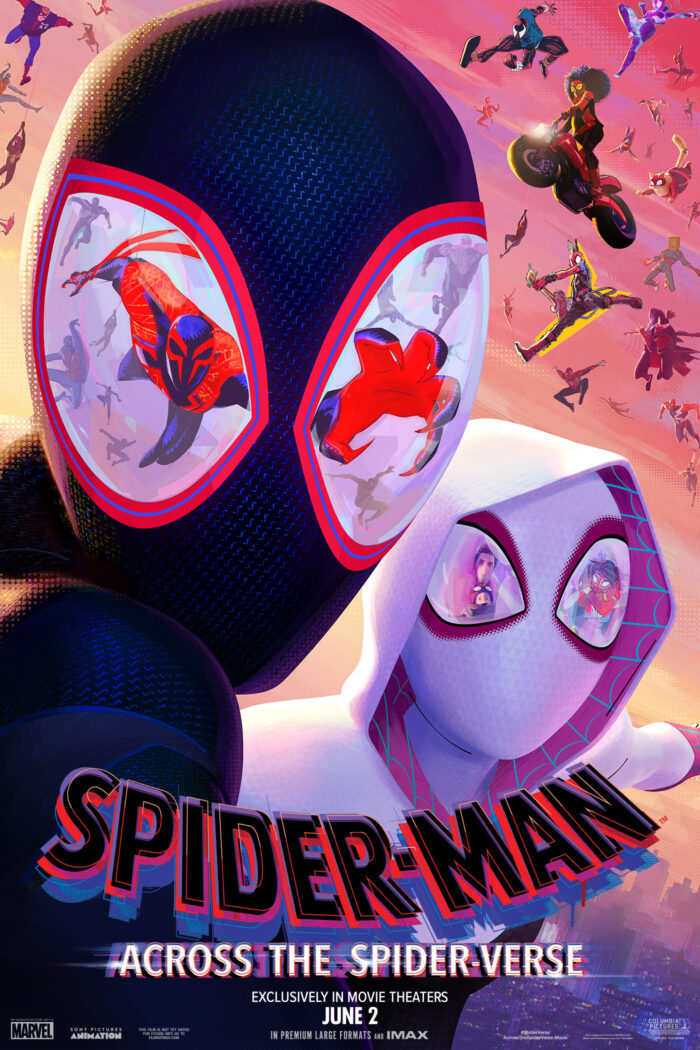Spider-Man: Into the Spiderverse stands not only as my favorite animated movie but in my top 10 of all time as well. It took animation to a level that had never been achieved before and felt like it had literally popped off the pages of a comic book. Not only that, it was a near perfect blend of action, comedy, and drama that is a feat just on its own. Thus, Across the Spiderverse had a high bar set for it that could have been an insurmountable task with any other creative team, but writers Phil Lord and Christopher Miller took the foundation laid before and built something so spectacular that it left me breathless by the end.
Once again, I am generally skipping the synopsis since there is a lot people should uncover on their own. Essentially, Miles Morales (Shameik Moore) and Spider-Woman/Ghost Spider (Hailee Steinfeld) are skipping through the multiverse on a quest to derail the plans of The Spot (Jason Schwartzman) whose machinations threaten the lives of trillions.
As I mentioned before, the art style and animation of the first film set a new standard for the media, and somehow, the sequel manages to improve on it greatly. Color and shadow play a large role not only in setting the mood but evoking the emotions of the characters on the world around them in ways that defy description. Individual scenes evolve constantly from pencil sketches, to watercolor, to graffiti art, and there isn’t a frame in the movie that wouldn’t feel at home hanging up in an art museum.
Not to mention just how jam-packed this is with plot lines, twists, and Easter eggs in general. Sometimes, when a movie gets overstuffed with these things, it feels like it’s all being thrown at the wall to see what sticks, but everything here feels purposeful. The story starts slow before ramping up quickly into the multiverse traversal to stop The Spot, but it does so completely organically and in a way that doesn’t feel rushed or forced. Despite being in a very illogical setting, this all feels strangely logical.
And emotional.

As much as this is spectacle, the main message behind it echoes the original in that it’s about family and longing for acceptance. Stories about teenagers will always be popular since it’s a shared experience that everyone has to go through – both as living through those times and, for those with children, figuring out how to traverse the challenges of being a parent of one. The pain, confusion, and anger that Miles and his parents feel are quadrupled since not only are they dealing with angst, his secret identity drives everything to the breaking point. Across the Spiderverse doesn’t approach this in a cliched or trite way though. Instead, it has meaning and connection to everyone.
It’s rare that I will ever say a movie is perfect, but Into the Spiderverse was, and this is why it was so surprising that Across the Spiderverse manages to not only exceed it but almost make it look like it a rough draft. Because of this, I have no reservations in saying that it’s a masterpiece. It proves that you can have a fun time at a movie executed at the highest skill level, and that it’s not a prerequisite of film excellence to be a feel-bad period piece that debuted at Sundance. Across the Spiderverse shows us that animation deserves to be recognized as legitimate filmmaking (many argue it doesn’t), and that a comic book movie about a kid who shoots spiderwebs can and should be considered art.
